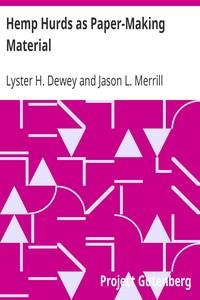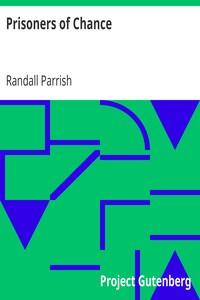|
|
Read this ebook for free! No credit card needed, absolutely nothing to pay.Words: 196949 in 35 pages
This is an ebook sharing website. You can read the uploaded ebooks for free here. No credit cards needed, nothing to pay. If you want to own a digital copy of the ebook, or want to read offline with your favorite ebook-reader, then you can choose to buy and download the ebook.

: Salem Witchcraft Volumes I and II With an Account of Salem Village and a History of Opinions on Witchcraft and Kindred Subjects by Upham Charles Wentworth - Witchcraft Massachusetts Salem History 17th century; Salem (Mass.) History Colonial period ca. 160@FreeBooksTue 06 Jun, 2023 cter in the following terms: "But it is not on the praises of others, but on his own writings, that he is to depend for the esteem of posterity, of which he will not easily be deprived, while learning shall have any reverence among men: for there is no science in which he does not discover some skill; and scarce any kind of knowledge, profane or sacred, abstruse or elegant, which he does not appear to have cultivated with success." Sir Thomas Browne was considered by those of his own generation to have made great advances beyond the wisdom of his age. He claimed the character of a reformer, and gave to his principal publication the title of an "Enquiry into Vulgar Errors." So bold and free were his speculations, that he was looked upon invidiously by many as a daring innovator, and did not escape the denunciatory imputation of heresy. Nothing could be more unjust, however, than this latter charge. He was a most ardent and zealous believer in the doctrines of the Established Church. He declares "that he assumes the honorable style of a Christian," not because "it is the religion of his country," but because, "having in his riper years and confirmed judgment seen and examined all, he finds himself obliged, by the principles of grace and the law of his own reason, to embrace no other name but this." He exults and "blesses himself, that he lived not in the days of miracles, when faith had been thrust upon him, but enjoys that greater blessing pronounced to all that believed, and saw not:" nay, he goes so far as to say, that they only had the advantage "of a bold and noble faith, who lived before the coming of the Saviour, and, upon obscure prophecies and mystical types, could raise a belief." The fact that such a man was accused of infidelity is an affecting proof of the injustice that is sometimes done by the judgment of contemporaries. This prodigy of learning and philosophy went into Court, took the stand, and declared his opinion in favor of the reality of witchcraft, entered into a particular discussion of the subject before the jury, threw the whole weight of his great name into the wavering scales of justice, and the poor women were convicted. The authority of Sir Thomas Browne, added to the other evidence, perplexed Sir Matthew Hale. A reporter of the trial says, "that it made this great and good man doubtful; but he was in such fears, and proceeded with such caution, that he would not so much as sum up the evidence, but left it to the jury with prayers, 'that the great God of heaven would direct their hearts in that weighty matter.'" The result of this important trial established decisively the interpretation of English law; and the printed report of it was used as an authoritative text-book in the Court at Salem. The celebrated Robert Boyle flourished in the latter half of the seventeenth century. He is allowed by all to have done much towards the introduction of an improved philosophy, and the promotion of experimental science. But he could not entirely shake off the superstition of his age. A small city in Burgundy, called Mascon, was famous in the annals of witchcraft. In a work called "The Theatre of God's Judgments," published, in London, by Thomas Beard in 1612, there is the following passage: "It was a very lamentable spectacle that chanced to the Governor of Mascon, a magician, whom the Devil snatched up in dinner-while, and hoisted aloft, carrying him three times about the town of Mascon, in the presence of many beholders, to whom he cried in this manner, 'Help, help, my friends!' so that the whole town stood amazed thereat; yea, and the remembrance of this strange accident sticketh at this day fast in the minds of all the inhabitants of this country." A malicious and bigoted monk, who discharged the office of chief legend-maker to the Benedictine Abbey, in the vicinity of Mascon, fabricated this ridiculous story for the purpose of bringing the Governor into disrepute. An account of another diabolical visitation, suggested, it is probable, by the one just described, was issued from the press, under the title of "The Devil of Mascon," during the lifetime of Boyle, who gave his sanction to the work, promoted its version into English, and, as late as 1678, publicly declared his belief of the supernatural transaction it related. The subject of demonology, in all its forms and phases, embracing witchcraft, held a more commanding place throughout Europe, in the literature of the centuries immediately preceding the eighteenth, than any other. Works of the highest pretension, elaborate, learned, voluminous, and exhausting, were published, by the authority of governments and universities, to expound it. It was regarded as occupying the most eminent department of jurisprudence, as well as of science and theology. But perhaps the writer of the greatest influence on this subject in England and America, during the whole of the seventeenth century, was William Perkins, "the learned, pious, and painful preacher of God's Word, at St. Andrew's, in Cambridge," where he died, in 1602, aged forty-four years. He was quite a voluminous author; and many of his works were translated into French, Dutch, Italian, and Spanish. Fuller, in "The Holy State," selects him as the impersonation of the qualities requisite to "the Faithful Minister." In his glowing eulogium upon his learning and talents, he says:-- An octavo volume, written by this great scholar and divine, was published at Cambridge in England, under the title, "Discourse of the Damned Art of Witchcraft." It went through several editions, and had a wide and permanent circulation. This work, the character of which is sufficiently indicated in its emphatic title, was the great authority on the subject with our fathers; and Mr. Parris had a copy of it in his possession when the proceedings in reference to witchcraft began at Salem Village. John Gaule published an octavo volume in London, in 1646, entitled, "Select Cases of Conscience concerning Witches and Witchcraft." He is one of the most exact writers on the subject, and arranges witches in the following classes: "1. The diviner, gypsy, or fortune-telling witch; 2. The astrologian, star-gazing, planetary, prognosticating witch; 3. The chanting, canting, or calculating witch, who works by signs and numbers; 4. The venefical, or poisoning witch; 5. The exorcist, or conjuring witch; 6. The gastronomic witch; 7. The magical, speculative, sciential, or arted witch; 8. The necromancer." Besides innumerable writers of this class, who spread out the scholastic learning on the subject, and presented it in a logical and theological form, there were others who treated it in a more popular style, and invested it with the charms of elegant literature. Henry Hallywell published an octavo in London, in 1681, in which, while the main doctrines of witchcraft as then almost universally received are enforced, an attempt was made to divest it of some of its most repulsive and terrible features. He gives the following account of the means by which a person may place himself beyond the reach of the power of witchcraft:-- Free books android app tbrJar TBR JAR Read Free books online gutenberg More posts by @FreeBooks
: The Mysterious Shin Shira by Farrow G E George Edward Easton W G Illustrator - Fantasy literature@FreeBooksTue 06 Jun, 2023

: Dead Man's Rock by Quiller Couch Arthur - Treasure troves Fiction; Cornwall (England : County) Fiction; Murder Fiction; Rubies Fiction@FreeBooksTue 06 Jun, 2023
|
Terms of Use Stock Market News! © gutenberg.org.in2025 All Rights reserved.






